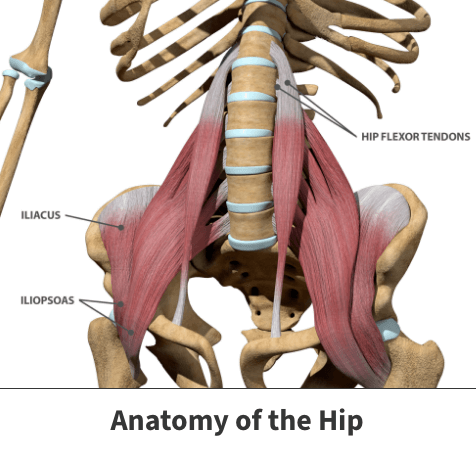Iliopsoas tendon release
Your hips are essential to your body and enable you to carry out several important functions like walking, standing, and bending. They also help balance your body weight and provide stability for both your lower and upper body.
Hip problems are often painful and debilitating. One medical procedure geared towards alleviating these issues is tendon release, specifically the iliopsoas tendon release. In scientific terms, this treatment is known as iliopsoas tenotomy. This surgical procedure is also used to fix a snapping or popping sensation in your hip that may happen when you stand up, walk, or move your leg a certain way.
Anatomy

Inside your hip is a structure called the hip flexor tendon – the iliopsoas tendon. It is in front of the hip’s socket and allows you to bend and move your hip.
About
Damage or irritation to this area can hurt your hip’s ability to function and cause many unpleasant symptoms.
Causes
Hip flexor tendon injuries result from overuse of the surrounding hip flexor muscles. Occasionally, the damage could result from acute, traumatic events like accidents or falls.
Risk factors
Your risk for hip flexor tendon damage drastically increases if you are active in sports such as:
- Cycling
- Running
- Climbing
- Soccer
- Football
Additionally, recreational dancing could lead to the condition’s development.

Symptoms
The most obvious sign of a hip flexor tendon injury is pain. This pain often occurs in or near the groin and can produce a clicking sound or feeling. Other possible symptoms include pain in the hip. This discomfort worsens when you bend or engage in moderate to significant exercise, besides a tenderness in the groin or hip. You may also experience stiffness and tightness in the mornings and have pain in your buttocks.
Complications
Failing to remedy hip flexor tendon issues can injure neighboring parts leading to more significant pain and disability. These issues could prove far more challenging to treat later and may need more aggressive therapy.
Diagnosis
Iliopsoas tenotomy will not typically be your doctor’s first choice of treatment. Usually, this procedure is performed if you have significant pain or mobility problems.
Your physician will use any number of visual or movement tests to gauge the need for the procedure. X-rays, MRIs (magnetic resonance imaging), and CT scans (computerized tomography) are used to capture internal scans of your hip, revealing any damage to the flexor tendon.
The procedure
Two separate procedures are used for the release of the hip flexor tendon. One is a less invasive process called endoscopic release, while the other is open surgery involving more incisions and scarring.
A less severe injury might be improved through endoscopic release. Orthopedic surgeons repair the tendon using a small, camera equipped tool called an endoscope during this procedure.
When more severe damage is found or surrounding structures are involved, open surgery involving deeper penetration and extensive repair may be necessary.
Recovery
Following surgery, you will likely spend at least one or two days in the hospital. More advanced procedures might need longer stays. You will probably be given intravenous antibiotics during the first 24 hours after the procedure to prevent infection.
To promote and speed up the healing process, you should follow post-surgical rehabilitation suggestions, including:
- Using assistance devices like crutches until you can walk properly or when post-operative discomfort stops.
- Avoid placing excessive weight on the affected hip until healing is complete.
- Avoid stretching, bending, or any other action that stresses the hip flexor tendon for at least several weeks following the procedure.
Physical therapy
You will be prescribed a course of physical therapy. These specialized exercises created by your physician and physical therapist help you regain any hip strength and motion capabilities you might have lost while injured.
Videos
Related specialties
- Anterior Hip Replacement
- Avascular Necrosis (Osteonecrosis)
- Groin Strains & Pulls
- Hamstring Injuries
- Hip Arthroplasty
- Hip Arthroscopy
- Hip Dislocation
- Hip Flexor Strains
- Hip Fractures
- Hip Hemiarthroplasty
- Hip Impingement Labral Tears
- Hip Muscle Strains
- Hip Pointers & Trochanteric Bursitis
- Labral Tears of the Hip (Acetabular Labrum Tears)
- Osteoarthritis of the Hip
- Osteoporosis
- Pelvic Ring Fractures
- Piriformis Syndrome
- Sports Hernias (Athletic Pubalgia)
- Thigh Fractures
- Thigh Muscle Strains
